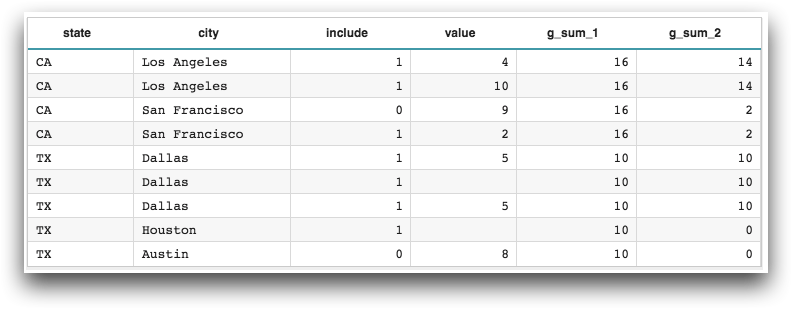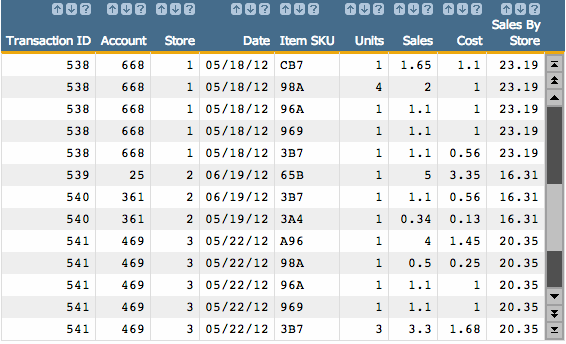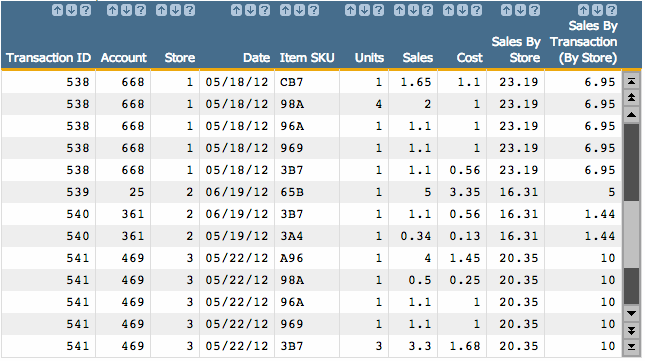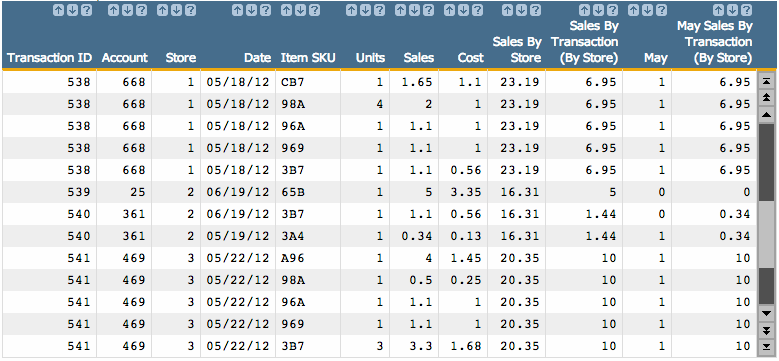g_sum(G;S;X)
Returns the sum of values within a given group.
Function type
Vector only
Syntax
g_sum(G;S;X)Input
| Argument | Type | Description |
|---|---|---|
G |
any | A space- or comma-separated list of column names Rows are in the same group
if their values for all of the columns listed in If If any of the columns listed in |
S |
integer | The name of a column in which every row evaluates to a 1 or 0, which determines
whether or not that row is selected to be included in the calculation If
If any of the values in
|
X |
any numeric type | A column name N/As in |
Return Value
For every row in each group defined by G (and for those rows where
S=1, if specified), g_sum returns
a decimal value corresponding to the sum of the values in the column listed in
X that are in the same group as that row.
If all values for a particular group are N/A, the result is 0.
Sample Usage
<base table="pub.doc.samples.ref.func.g_func_sample_usage"/> <willbe name="g_sum_1" value="g_sum(state;include;value)"/> <willbe name="g_sum_2" value="g_sum(state city;include;value)"/>

Example
Let's say we want to figure out the total sales for every store in our Sales Item Detail table (pub.demo.retail.item).
<base table="pub.demo.retail.item"/>Create a computed column using the g_sum(G;S;X)
function. Specify store as the group
(G), since we're grouping by store; specify
sales as X since we want
the sum of sales; and leave the selection parameter
(S) blank, since we want to take into
account all of the transactions (not just a subset of those
transactions):
<willbe name="salesbystore" value="g_sum(store;;sales)" label="Sales By`Store"/>Since we didn't specify a selection column, the
salesbystore column will show the total
sales for every store.

Now let's find the total amount of sales for each transaction in every
store. To do this, we group by both store and
transid:
<willbe name="salesbystoreandtransid" value="g_sum(store transid;;sales)" label="Sales By`Transaction`(By Store)"/>
Now let's see if we can find out that same information but only for those
transactions that occurred in May. For this, we can use the
selection column parameter of the g_sum(G;S;X)
function.
Create a computed column that evaluates to true if the transaction date occurs in May:
<willbe name="may" value="between(date;'5/1/2012';'5/31/2012')" label="May"/>Now, use the may computed column as the selection column
in the g_sum(G;S;X) function:
<willbe name="salesbystoreandtransid_may" value="g_sum(store transid;may;sales)" label="May Sales By`Transaction`(By Store)"/>The salesbystoreandtransid_may column now shows the
total sales for each transaction that occurred between 5/1/2012 and
5/31/2012 in every store.

